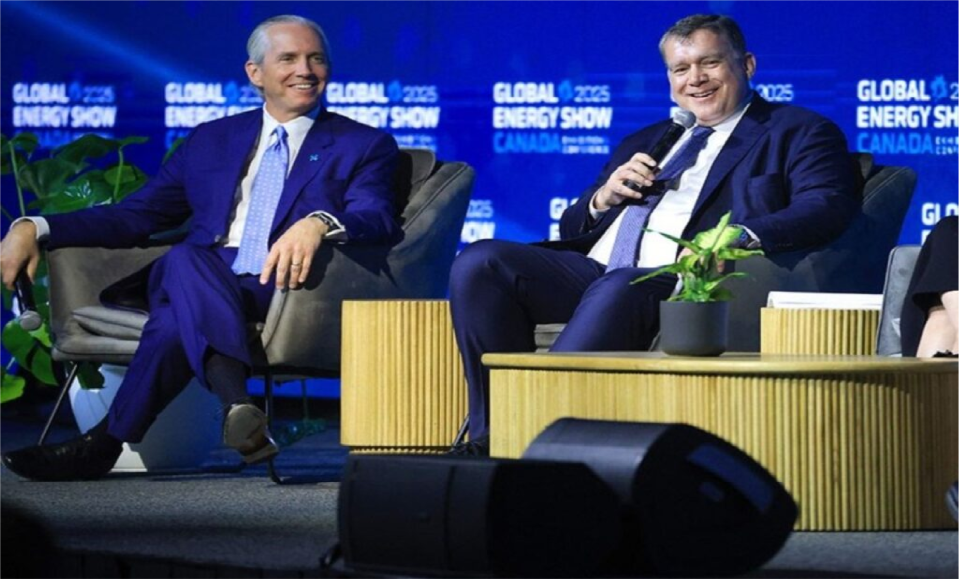Ejekwu Chidiebere (Editted)
- Canada aims to diversify exports amid US trade tensions
- Carney government seeks projects to boost Canada’s energy status
The United States relies on Canadian oil imports, despite comments to the contrary by US President Donald Trump, Cenovus Energy (CVE.TO) CEO was originally reported by Reuters to have said on Tuesday.
Trump who has always threatened with his “on-again, off-again tariffs” on Canada’s oil may have possibly forgotten that nearly 4 million barrels per day are exported to the United States from Canada. Canada Energy Window International (Media) gathered is the world’s fourth-largest oil producer, and fifth-largest natural gas producer.
Trump was reported to have boasted occasionally, maintaining that the US does not need to import goods, including oil and gas, from Canada.
Canada’s Prime Minister Mark Carney, who won a minority government in April on a wave of anti-Trump voter sentiment, has said the country’s old relationship with the US based on steadily increasing economic integration was already over.
Jon McKenzie, who heads oil sands company Cenovus and chairs the Canadian Association of Petroleum Producers industry group, was reported as saying that trade tensions between the two nations have highlighted the need for Canada to diversify its exports. This is notwithstanding the fact that the two countries’ energy systems are inextricably tied.
“What hasn’t changed is energy economics and energy physics. The reality is we are hardwired into the U.S. system,” McKenzie was quoted to have said at an energy conference in Calgary, Alberta.
Adding that Canada depends on US refiners to buy the vast majority of its exported oil, while landlocked US refineries in the Midwest are configured to process the grade of crude that Canada produces.
McKenzie was also reported as maintaining that Canada is not lacking in terms of opportunities to grow its oil output in the coming decades, adding that Trump’s government ought to recognize the inevitability of Canada as an ally of the US and so must seek measures of improving that relationship.
“We need to make sure that we don’t act viscerally when we’re threatened, and that we act intelligently in our long-term interest,” he was quoted to have said.
Carney was reported to have pledged, as part of a response to the US tariff threat, to identify and fast-track projects of national interest aimed at helping Canada become what he calls a “conventional and clean energy superpower.”
McKenzie said the oil and gas sector does not want the federal government to pick winners and losers by deciding which projects to fast-track.
He said the industry instead wants to see broad regulatory reform that will remove barriers to investing in oil and gas projects.
Source: EnergyNow

